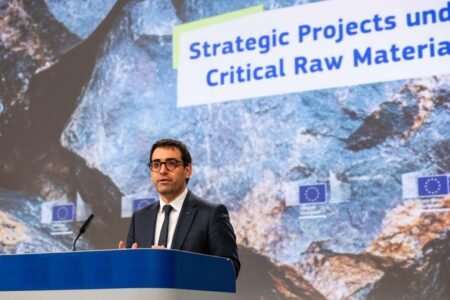Researchers and industrialists from Europe and abroad have clinched EUR 18 million in EU support for their collaboration on projects targeting influenza. In total, 52 research institutes and small and medium-sized enterprises (SMEs) from 18 European countries, as well as China, Israel and the US will work together on 4 projects to determine how influenza virus genes migrate, and how they pose a serious threat to the well-being of humans and animals. In less than a decade, the Commission has earmarked more than EUR 100 million for research on influenza.
‘Seasonal flu alone can kill 250,000 to 500,000 people worldwide every year and EU-funded research projects like these can help save lives,’ said Máire Geoghegan-Quinn, the EU Commissioner for Research, Innovation and Science. ‘What is more, successful EU research in preventing and treating flu and other diseases has enormous social and economic value and can contribute significantly to our Europe 2020 goals.’
The funding granted to two of the four consortia will help them develop innovative drugs that can fight influenza in humans, while the other two consortia will investigate influenza in pigs.
The breakdown of the EU funding for each project, as well as the details of these projects, will be determined when the signing of contracts takes place in 2010. The call for proposals for new research projects on influenza was launched last July, and 17 proposals were submitted.
The two projects set to develop new drugs against influenza are FLU-PHARM (‘New drugs targeting influenza virus polymerase’) and FLUCURE (‘Development of novel antiviral drugs against influenza’). Over a 42-month period, FLU-PHARM will develop new drug candidates able to inhibit viral replication in infected cells, specifically by targeting the PB2 (polymerase basic protein 2) and PA (polymerase acidic) protein domains.
The drugs developed by FLU-PHARM will help mitigate the threat of influenza to patients by reducing the risk of developing resistance to drugs and easing any potential side effects. If their results are successful, the FLU-PHARM partners will offer new opportunities for treating seasonal and pandemic flu. This project expects to receive EUR 6 million in financial support. The FLU-PHARM partners are from Belgium, Germany, Spain, France, Austria, Slovakia and Sweden.
FLUCURE will focus on targeting viral replication machinery, specifically the PB1 (polymerase basic protein 1)/PA proteins and NP proteins (nucleoproteins). The partners from Bulgaria, Germany, Italy, Lithuania, the Netherlands, Sweden and Switzerland anticipate receiving EUR 6 million in funding to develop new drug candidates with a reduced risk of resistance. FLUCURE targets delivery of one or more drug candidates that can be clinically developed within four years.
The ESNIP 3 (‘European surveillance network for influenza in pigs 3’) and FLUPIG (‘Pathogenesis and transmission of influenza virus in pigs’) projects, with respective funding expected at EUR 1 million and EUR 5 million, will focus on how influenza affects pigs.
ESNIP 3 will maintain and further develop the surveillance network for influenza in pigs that was set up within the ESNIP 1 and ESNIP 2 projects, both funded by the EU. The ESNIP 3 partners from Belgium, China, Denmark, Finland, France, Germany, Greece, Hungary, Israel, Italy, the Netherlands, Poland, Spain, the UK and the US will give pandemic vigilance a boost and provide evidence needed to help experts make the right decisions for good veterinary health.
FLUPIG will determine how to best understand the involvement of pigs in influenza pandemics, a subject needing further clarification since their exact connection is unclear. Researchers note that there is also a lack of understanding of the nature of the genetic changes that are needed for efficient replication of an avian virus in pigs, efficient transmission of avian viruses between pigs, and virus transmission from pigs to humans and between humans. Fuelling knowledge about this will help experts determine methods to better control influenza pandemics in the future. The FLUPIG partners are from Belgium, China (Hong Kong), Germany, Italy, the Netherlands, Poland, the UK and the US.
In a new report, the European Centre for Disease Prevention and Control (ECDC) stresses that influenza viruses are notorious for their unpredictability. ECDC experts note that most EU and EFTA (European Free Trade Association) countries reported that community transmission of influenza was on the decline by the end of 2009. It should be noted that countries are reporting continuing low-level transmission. Confirmed pandemic influenza deaths, while disclosed on national websites for instance, are also dropping in number.
Source: Community R&D Information Service (CORDIS)






